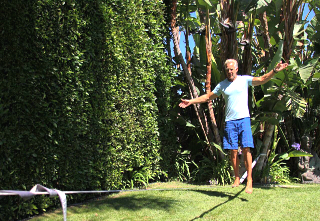 I’m not a productivity hack guy. I’m not a “hack guy,” at all, for that matter. My mind doesn’t really operate on the hack wavelength. When I want to do something, I do it. There’s no benefit to trying to “trick” myself into being more productive.
I’m not a productivity hack guy. I’m not a “hack guy,” at all, for that matter. My mind doesn’t really operate on the hack wavelength. When I want to do something, I do it. There’s no benefit to trying to “trick” myself into being more productive.
Now, maybe that would have been different if I were doing something I hated. If I were forced to work on things I didn’t care about at all, I might have to employ some of the productivity hacks I see people advocating and using. So for today, I’m going to talk about those. I’m also going to give my tips for productivity that don’t qualify as “hacks” per se.
My Productivity Method
For me, I follow a simple process that’s never let me down.
- Write down the tasks that need to be completed.
- Complete the tasks.
This is a remarkable method. It’s simple (just two steps) and it’s foolproof (following both steps as laid out improves productivity every time).
Note: it’s crucial to follow every step to the letter. This method doesn’t work if you don’t.
In my experience, however, this first method doesn’t work for everyone. I strongly suspect they’re just not following the protocol to a tee, but just the same, I’ve come up with some more specific recommendations for unique productivity deficits.
Slackline
My favorite productivity tool is the slackline. Yes, that long strip of flat webbing hung between two anchor points that you use to balance, walk, jump, and play. There’s something unique about what five to ten minutes on the slackline does to your brain. To me, it feels like a reset. It feels like the brain floods with blood and clears out all the competing desires and circular thoughts that keep a person from stay on task and on target. The sensation of being on a slackline is so alien to most people—you’re balancing, you’re bouncing, there’s some tension but not enough to truly be stable—that it’s a totally novel input that forces you into the immediate moment. Then, when you get off, your brain feels looser and your muscles feel energized and pumped, and you sit down and get right back to work.
Here’s a good overview of slacklining.
Alarm clock
Set the alarm to go off every thirty minutes or so, and use it as motivation to get up and do a set of pushups, pullups, and/or squats, just to keep active throughout the day. If you sit a lot at work (or even if you’re a standup workstation superstar), using a basic alarm clock to keep moving every hour (at least) should keep some of the negative health effects of sitting at bay while improving your ability to focus. You know you shouldn’t be sitting for that long, and the clock is free, so you really have no excuse.
Use your mouse with your off hand
This is a very niche, esoteric tip I picked up from a friend of mine. He was doing an experiment trying to develop more fluency with his off hand. Right-handed, he would brush his teeth with his left hand, cook with his left, and do all sorts of basic functional movements using his left hand instead of his dominant right hand. After using his left hand to control his mouse on the computer, he noticed something really interesting: he was far more productive that way and far less distracted by extracurricular websites. Although he was a little more clumsy with the left hand, he found he wasn’t clicking on social media sites or any of the other computer activities he’d frequently use to distract himself from the work.
If you have trouble with distracting websites, try using your non-dominant hand to use the mouse or scroll the track pad. Using the “other side” of your brain in this manner might get you out of the neuronal grooves responsible for distracting yourself.
Work outdoors
I don’t mean go get a job on a farm (although that’s great, too). I mean take your work outside. If you work on a laptop, you can definitely do this outside—weather permitting—and the benefits to productivity, not to mention happiness, are huge. When you’re outside:
- You’re breathing fresh air.
- You have full spectrum natural light entering your eyes which increases alertness and energy.
- You’re reducing stress and cortisol, which burn energy and make you lose focus.
- You’re restoring your attentional capacity—the amount of “focus” you have in your tank. Research shows that spending time in nature is one of the best ways to restore this capacity to pay attention.1
Working outside just works. Here’s how to do it.
Take a “sprint vacation”
Sometimes we simmer in non-productive work mode for too long. We sit in front of the computer doing nothing at all, really, convincing ourselves and our nervous systems that we are “working.” It’s miserable and it’s how a lot of people spend their days at work. It’s also very non-productive.
Not everyone can swing this, but I highly recommend taking a “sprint vacation”: getting away for 3-10 days to just hit a project (creative or otherwise) with everything you’ve got as hard as you can. You don’t have to do it in an expensive getaway location, although that can be nice if it’s possible. It can also be tough with young children at home. But even if it’s just renting a modest cabin somewhere in the woods for a few days to go write or code or plan, it can really pay off.
Deload
Just like you need to deload from physical training every now and again, just like refraining from lifting any weight at all for a week can make you stronger in the long run and when you return, deloading from work for a day or two or seven can make a huge difference in your productivity.
Just don’t do anything for a few days or longer. Nothing work related. Take walks, go swimming, have dates with your spouse, take your kids somewhere fun, do puzzles. Workout. Just do anything unrelated to work and take a total break from it all.
Energy break
You’re in the midst of work. Things are slowing down. You’re slowing down. Energy lags. You’ve already had coffee, tea, all that. How can you get a little boost?
Hold your breath and jump in place as long as you can. Other movements work too, like squats or pushups or burpees. But just hold your breath and do a movement rather intensely. Breathe in when you must, and feel the energy flow through you.
These are the productivity “hacks” I, as a guy who recoils from the idea of hacks, find to be most useful and promising. What about you? How do you like to hack productivity?
Don’t Break the Chain
Jerry Seinfeld used this method to become one of the most prolific and successful comedians in history. It’s very simple: every day you do the required amount of desired work or activity, you cross that day off on the calendar. If you keep making progress each day, you get an unbroken chain of Xs across the calendar. Don’t break the chain and you’ll ensure you stay productive.
This is probably one productivity hack I’d actually be willing to try. It’s low-tech. It’s simple. It provides instant, tangible, visual feedback.
Kanban Board
Kanban is a work-flow method developed by an engineer at Toyota to improve productivity and organize project progress in the plants. It’s very simple, especially used for general productivity. You get a large board with three columns: To Do, Doing, Done. You write all your “to-dos” on magnetic or sticker squares. As a particular task, project, or goal progresses from “to do” to “doing” and finally “done,” you move it to the correct column.
Here’s a Kanban board you can buy.
Use the Pomodoro technique
With Pomodoro, you do focused work for 25 minutes and then take a 5-minute break. Download an app like this one that lets you organize your to-do list and reminds you to stop for a breather. Use those breaks wisely:
- Drink some water
- Make a cup of tea or coffee
- Go outside
- Take some deep nasal breaths
- Run a sprint
- Swing some kettlebell
- Stretch or do a two-minute microworkout
- Browse social media
- Listen to a song, either a calming one or a pumping-up one
- “Brain dump” in your journal for a few minutes to clear your mind
- Get a hug
- Give a hug
- Pet an animal
The post 10 Productivity Hacks That Really Work appeared first on Mark's Daily Apple.





